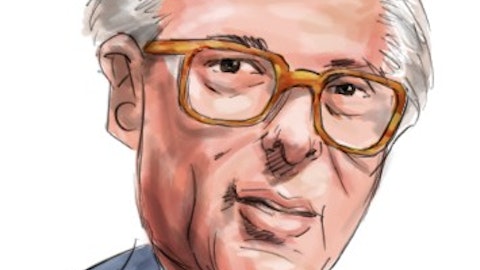Michael Parini: Thanks, Dae Gon. I think we’ll split up in three questions. Maybe I’ll take the first on 190. I mean, let me start by saying certainly a difficult decision to pause the program, but given where we are financially in the market conditions, we feel strongly that putting our full weight behind 201 is the right decision for Freeline and for patients. And so, it was nothing to do with what we observed in the third patient or ongoing surveillance of patients 1 and 2 in that study. 190, we’re not sharing data at this time on patient 3. We did dose the patient back in September of last year, but what I can say is, 190 was well tolerated. The profile was consistent with what we observed in patients wanting to and importantly on your question of troponin and myocarditis.
We did not observe an increased cardiovascular risk even with the doubling of the dose that we used in the second cohort. We will share data from that program at the right time, but right now, we’re really not sharing anything beyond that. And just singularly focused on 201. The second question I think is about GALILEO and I know Pam and I and the whole team have put a tremendous amount of work behind getting that program going and we’re really pleased with the progress we’ve made in the last few months. It certainly has had challenges just in the external market and challenges with using a disruptive technology in a relatively well-established physician practice paradigm. I know Pam, you want to talk a little bit about, sort of what we’ve heard from investigators in terms of interest, but also some of the steps that we’ve taken to really prepare that program for success.
Pam Foulds: Sure. Thank you. So, as Michael said, we are really pleased with the tremendous progress we’ve made in the Gaucher program in GALILEO-1. And we are in the midst of a big momentum wave, as I’d say. We’ve €“ not only have we met live with all of our investigators, both Michael and I and multiple members of the team. We’ve had a lot of good feedback from them on clear appreciation of the unmet need that remains. I think that’s important. We have heard a clear appreciation of the potential for gene therapy in Gaucher. We’ve also heard very clearly their interest and intrigued with our non-clinical data and their excitement into how that will translate into patients in our program. We’ve also spoken with a number of patient organizations as appropriate.
And they too have been very interested and excited and are partnering with us again as appropriate to share our €“ to share our trial, to share information and to give us feedback and that has been extremely positive. We have been focusing heavily on enrollment. We have made tremendous strides. We are working across 8 countries now, approval in 8 countries over 15 centers with 8 actively enrolling and working with us right now. We have another few over the next few months coming along as well. We are and continue to screen patients that has been going exceedingly well. We’re very excited about that. Also, we’ve been really focusing on execution. So, as I mentioned, getting sites up and running as well, but also in terms of looking across multiple patients screening, drug shipments, helping with scheduling of screening activities.
We have had a lot of great activity with that. And so, we are feeling very confident for our GALILEO endorsing.

